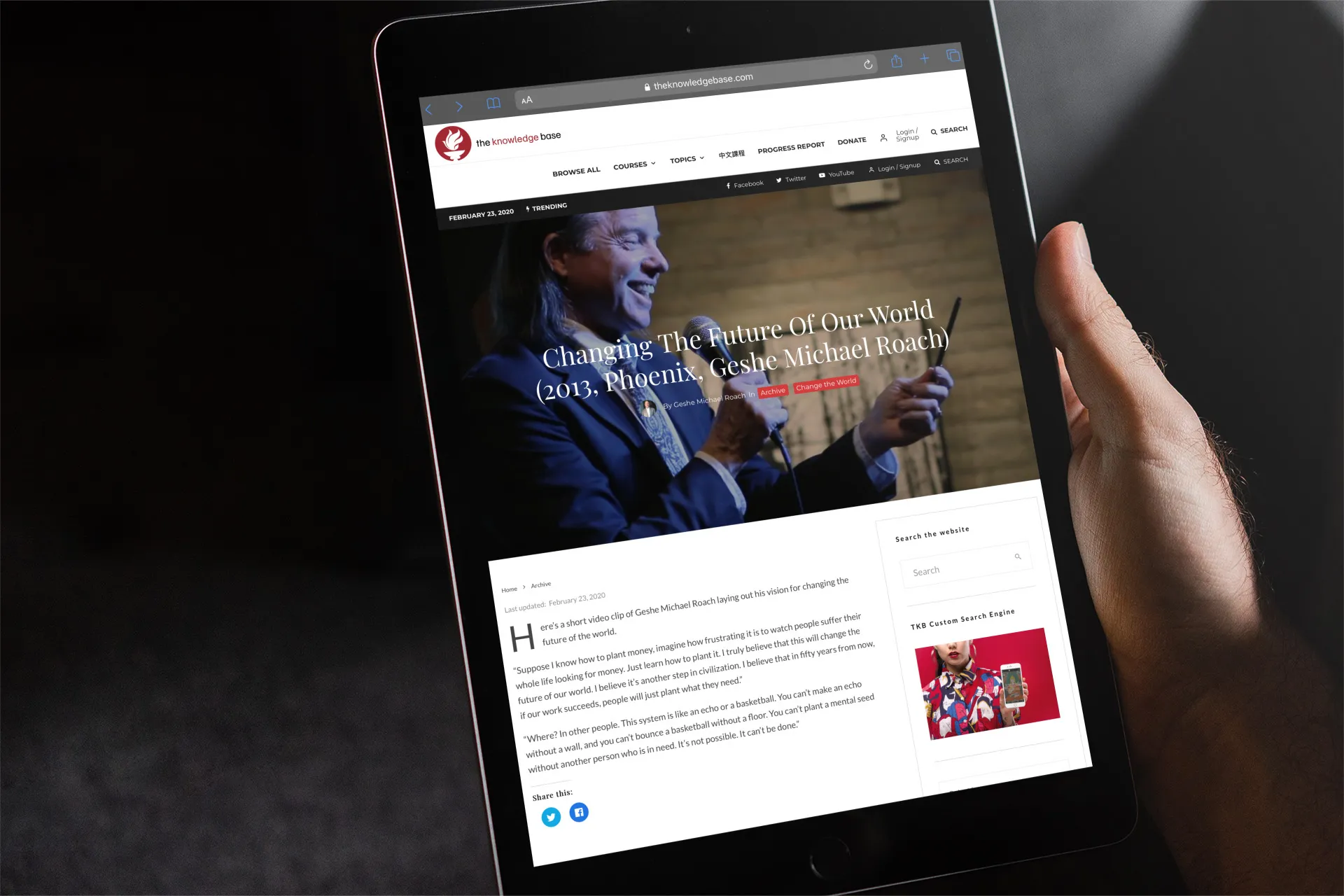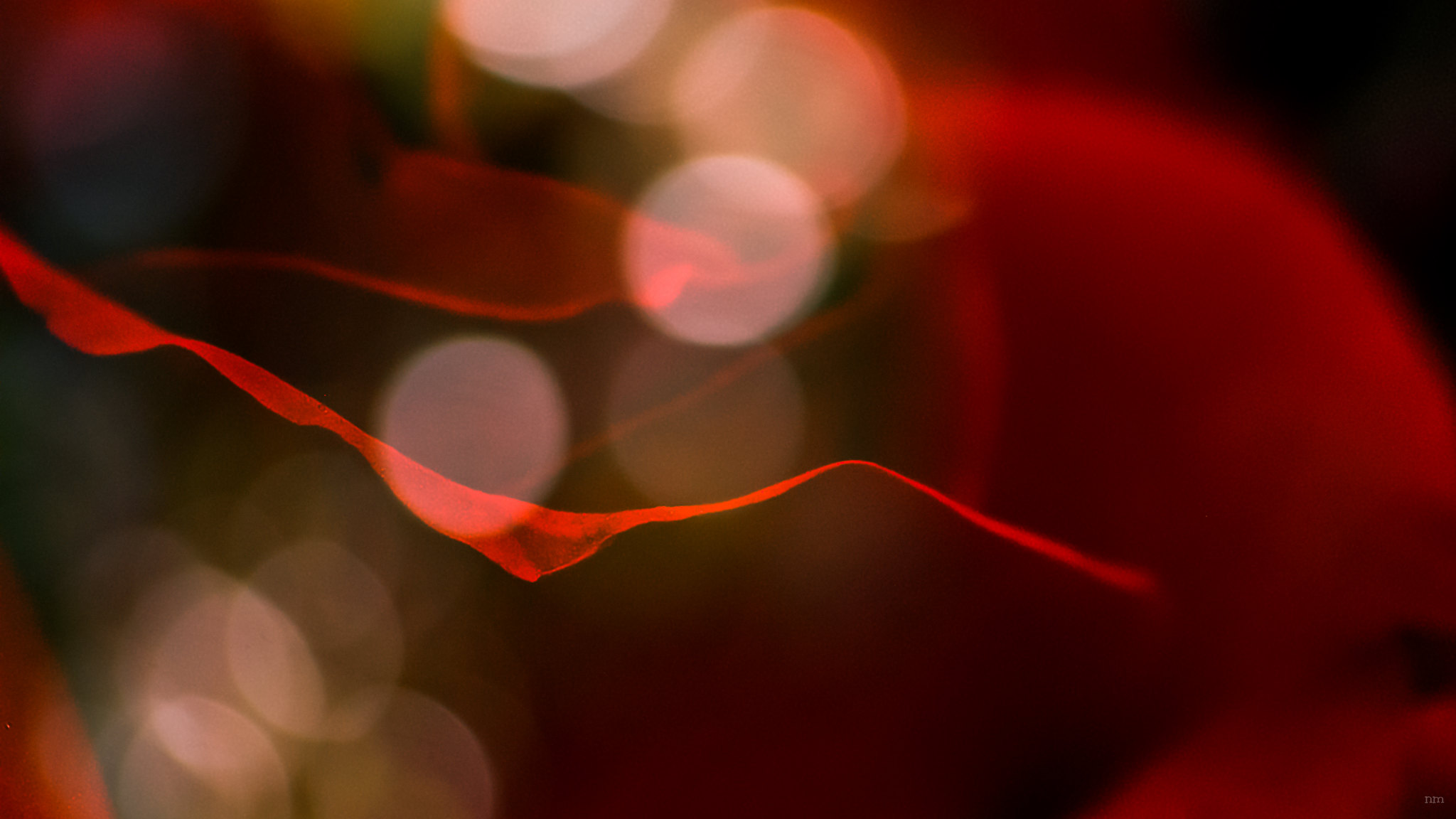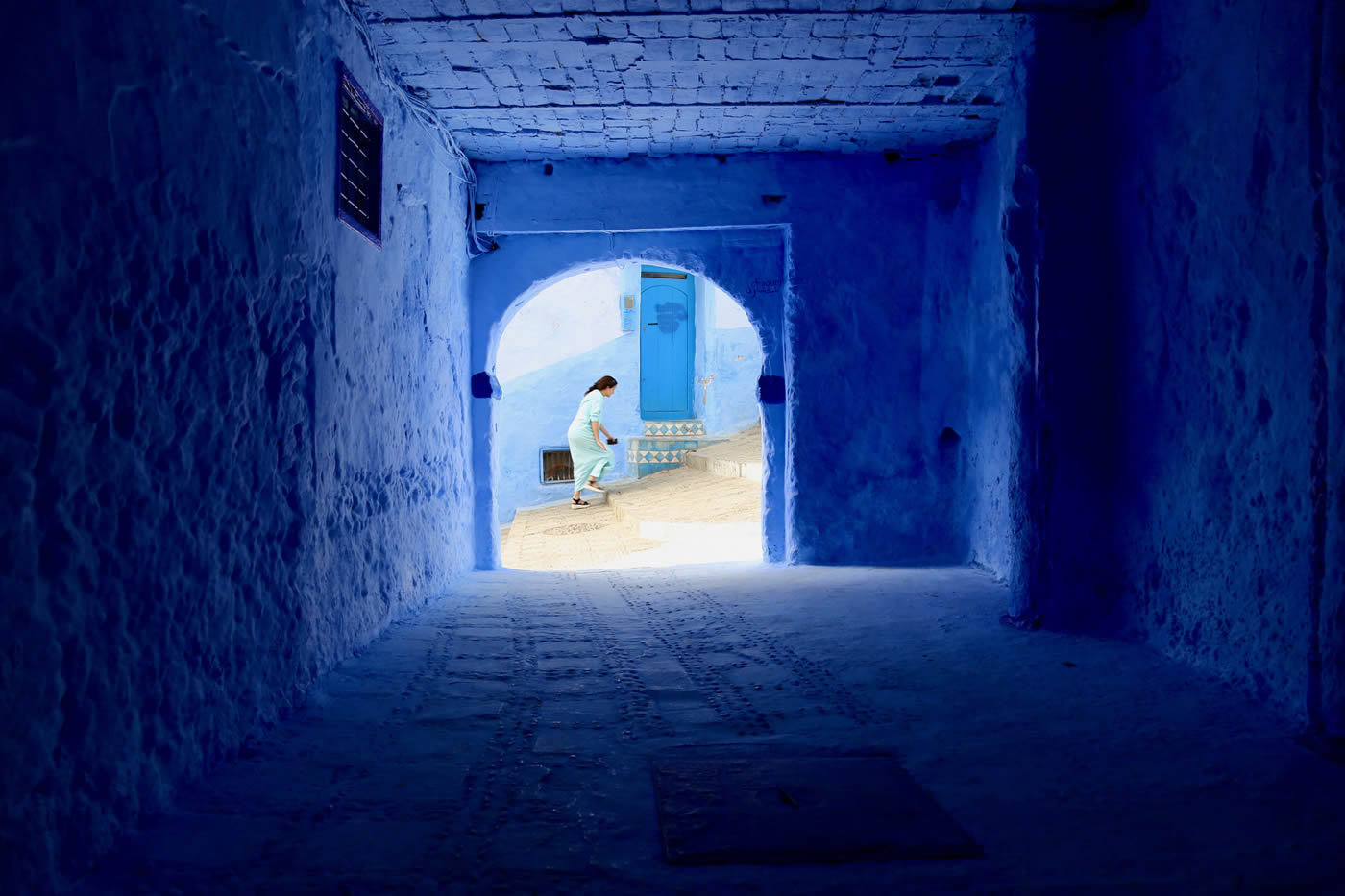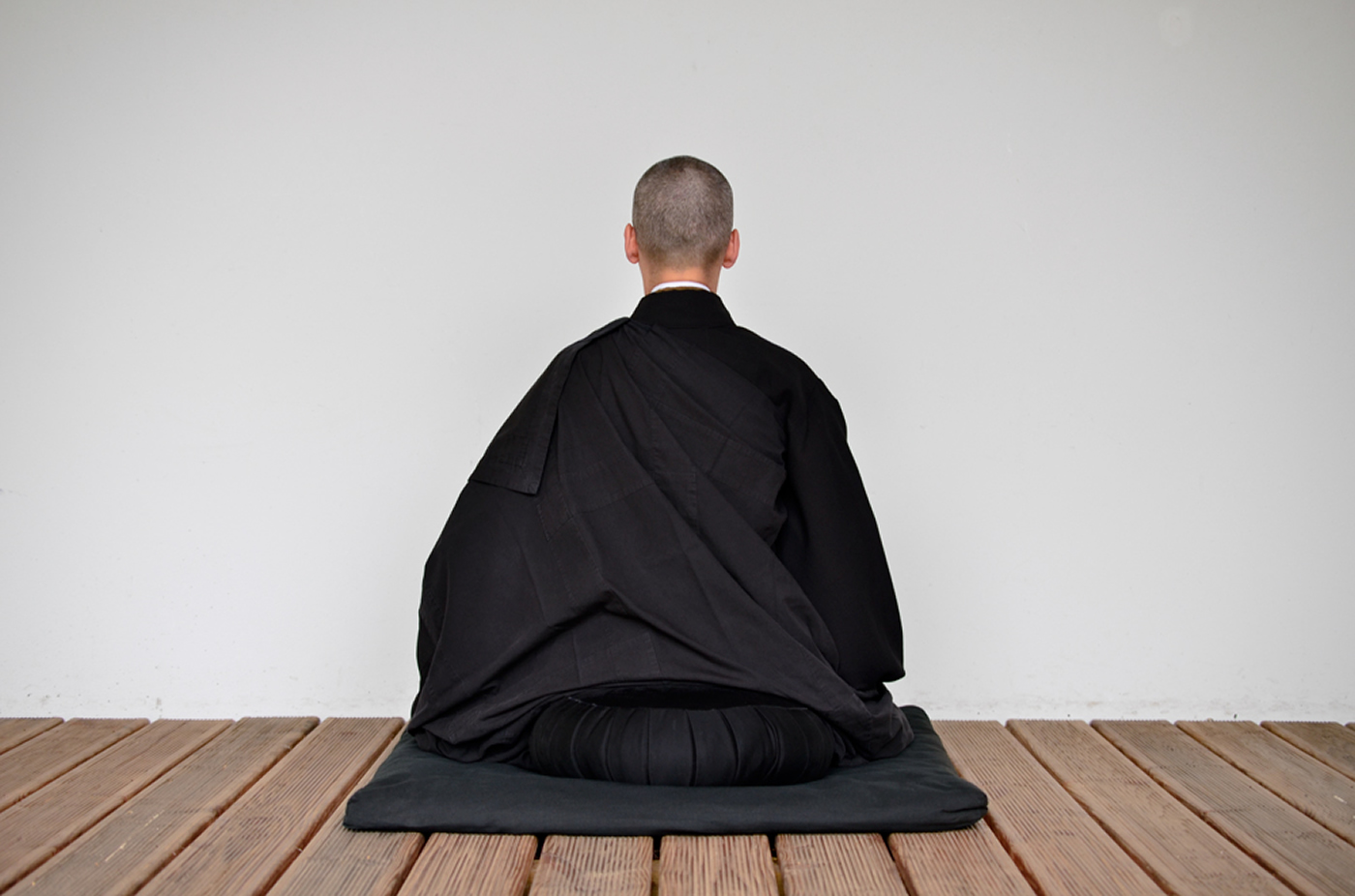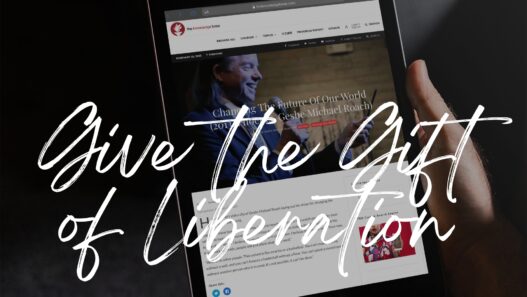Class 9: My Good Past Life
[su_icon icon=”icon: link” color=”#ff1259″ size=”20″ shape_size=”12″ url=”https://www.youtube.com/watch?v=EfxF2rQSo18&t=7s” target=”blank”]Video[/su_icon]Hi, welcome back to the Wheel of Life online retreat. We’ve reached session number nine, and this is going to be a meditation. And some of you have done this meditation before during the Lion’s Dance meditation. But we’re about to discuss the Wheel of Life in detail.
We’ve been talking about how to go from one life to another life, especially the bardo (BAR DO). And now we’re going to explore that. By the way, I made a mistake in the video yesterday, and I would like to correct it. So there are two books about how to help somebody in the bardo. And the two names are very similar, and I made a mistake yesterday. So the first book is called bardo tu drul (BAR DO THOS GROL), which means “just hearing about it you can be liberated in the bardo.” And that’s the book which is not considered authentic in our Tsongkapa tradition, and it has been translated in English as the “Tibetan Book of the Dead” or names like that.
So I would encourage you to rather use the great ancient books on the Abhidharma, and that’s the presentation I made in this course. The book name I used yesterday, which is bardo trang drul (BAR DO ‘PHRANG SGROL)—one word difference … that means “freedom from the narrow alleyway of the bardo.” And that’s a great book. So I made a mistake yesterday; I mentioned that book and that that’s a pretty famous jang chok (BYANG CHOG) or “how to help somebody in the bardo.”
Also yesterday, or a few days ago, we mentioned the word bum (‘BUM), like in Milarepa’s “One Hundred Songs.” And the usual name of his book is … the nickname is gur bum (MGUR ‘BUM). So literally it means “one-hundred thousand songs,” but the “hundred thousand” just means “a collection” of his songs; it’s not a hundred thousand. There’s a similar word sungbum (GSUNG ‘BUM), which means the collected works of any modern Tibetan in the last one thousand years. So we kind of… I think we translated it as “one hundred” and not “one-hundred thousand,” so it should be translated as “one-hundred thousand.”
[su_icon icon=”icon: link” color=”#ff1259″ size=”20″ shape_size=”12″ url=”https://www.youtube.com/watch?v=EfxF2rQSo18&t=4m31s” target=”blank”]Video[/su_icon]Okay, so we’re going to go through a meditation which is part of the ancient Lion’s Dance meditation, which was taught by Buddha, and also Maitreya and Asanga. And we’re going to go on a journey to our past life. But the purpose of that is to explore dependence—or you can call it dependent origination—which is the meaning of the twelve links inside the Wheel of Life. We’re going to be going deep into those twelve links starting with the next session, session ten. And there’s a way that you can explore them personally during a meditation. So let’s do that together. I’m going to put on my meditation timer. This is a nice timer. I would use it—it’s called Insight Timer.
[su_icon icon=”icon: link” color=”#ff1259″ size=”20″ shape_size=”12″ url=”https://www.youtube.com/watch?v=EfxF2rQSo18&t=5m55s” target=”blank”]Video[/su_icon]Okay, here we go. Get comfortable on your seat. A little bit of a smile. Of course there are serious things happening in the world, but it doesn’t mean we have to go around with a scowl on our mouths. These are the kind of times when people need a smile, and they need us to be friendly and warm towards them.
Relax your forehead. Relax your fingers. During the meditation, try not to tighten your forehead or get wrinkles on your forehead.
Personally, I find it very useful to have a slight smile. The eyes are closed, but they are focused a little bit up. And it’s very good to tighten the lower abdomen, which strengthens the back.
So here we go.
We’re going to start this meditation with ten breaths. So let’s count ten slow breaths. By tradition, the out-breath…the beginning of the breath is the out-breath. And remember that I’m asking you at the end of your out-breath to push out a little more air. Let’s enjoy ten long exhale breaths. The inhale will take care of itself.
And we’ll do a quick seven-step preliminary. So please invite one of your teachers to come and sit in front of you.
Now let’s make them a gift of appreciation of some great quality of theirs. Think of something about your teacher that you really admire.
Now let’s clean some bad seeds from yesterday. Think of two or three mistakes you made yesterday, and open up your heart and admit them to your teacher.
Make a promise not to repeat them for some length of time.
Now give equal time and energy to thinking about a few good things you did yesterday and telling your teacher.
Now ask for teachings in your life, some of them will come as positive teachings and some of them will come as challenges.
Now ask your teacher to please stay in your life. You can see a big difference between people who have a close teacher and people who don’t.
If we’re lucky, we have a teacher we can be close to.
[su_icon icon=”icon: link” color=”#ff1259″ size=”20″ shape_size=”12″ url=”https://www.youtube.com/watch?v=EfxF2rQSo18&t=18m01s” target=”blank”]Video[/su_icon]Now let’s go back to the beginning of these preliminary steps. We are looking at the teacher in front of us. Again, they are alive and they are warm—they are a real person. Now try to imagine something about them that you really appreciate.
The reason they’re your teacher is they know something that you would like to learn. They have certain habits or certain skills that we would like to learn. So think about just any one of those. Why are you…why did you choose them as a teacher? What do they have that you don’t have? What did they have that you want to learn? Think about one thing—one good quality.
Now think, “The reason I see this good quality,” if we go back to the the old popular pen teaching … “because a dog and a human see a pen as a different thing that shows that the pen is coming from the human’s mind and the same object is being seen as a chew toy by the dog.
Therefore, the pen is not coming from the pen. If the pen was coming from the pen, then both the dog and the human would see it as a pen. And the reason the human sees a pen is that they have a seed in their mind, and when they look at the cylinder stick—the pen stick—when they look on those parts, then the seed opens in their mind and an image made of light comes out of the seed and it settles down on the pen—on the cylinder—and that’s why the human sees a pen.”
Now, how that seed got into the human’s mind—karmic seed—we’re going to explore that during the Wheel of Life. But we all know, “because of the first law of karma—watermelons make watermelons—if I see an instrument of communication like a pen and that comes out of a karmic seed in my mind, then I must have helped some other people communicate in the past. That also applies to the beautiful quality I see in my teacher right now. It’s coming from a seed in my mind.
And because of the laws of karma, what I did to plant the seed is similar to how I see my lama acting now. So this sweet quality that I see in my lama nowadays—that’s coming out of a seed that I planted by behaving like him or her in my past lives. If I experienced my teacher as a very patient person—no anger—then it must be that in one of my past lives I was a person who didn’t have much anger.” So we’re going to go on sort of an exploration—a detective exploration. “That quality that I see in my teacher”—the patience, for example—”it must have been planted by me, myself, in a past life.”
So let’s go on an exploration to our past life—just in our imagination. And not many of us in this world have the ability to see our past lives directly, but it’s fun to guess, “What did I do in the past to see this?” Then use your imagination, have fun, enjoy! We’re trying to find powerful good seeds in our past lives. And make a movie in your mind.
“Oh, in my past life I was threatened by some other country’s army, but I was very patient and I refused to fight. I refused to be angry.” Then for the movie, you’re going to have to decide what country you were in, and what body were you in. Were you a man or were you a woman? What race of people or culture of people were you? Was it last year or was it a hundred years ago, or a thousand years ago? So make this beautiful story.
Don’t be shy. And make it sweet. If you have a teacher in this life, or you can even imagine an historical teacher in front of you, if you even heard in this life the word “Buddha,” or the word “Mohammed,” or the word “Jesus,” it means you’re a good person and you had some extraordinary experiences in your past life. So we’re going to go on a pretended exploration of our past life. Just enjoy. Make it detailed—don’t say, “Oh, I was patient.” Try to imagine someone… specific kind of person, “looks like this, tried to hit me, I was patient.” Okay?
Recently in my own case, if I just imagined my past life—I cannot see it directly—I keep getting a woman from the Middle East. And, I don’t know, maybe it was a thousand years ago and she’s a physician—she’s a doctor. Then I make a whole story about this physician. So you’ll see the the photograph… I put it as the header for this class. I found a picture online that looked like her. So let’s imagine. Have fun. Don’t get stuck. Don’t stop—if we still have more time, then slow down and make a nice story.
This is an exercise in the Wheel of Life. This is an exercise in dependent origination. The Shalistambha Sutra said—and we’re going to talk about it next class—Buddha said, “If you see something, then something made it happen.” So, let’s have fun. We’ll take about ten minutes.
If you get tired, if you forget what you’re doing, just come back. Keep adding more and more detail. Are you seeing your past life directly? I think in my case, and most of us, we are not. Are we just imagining our past life? Yeah, we are. But don’t forget, even a movie you imagine in your mind, those imaginations in your mind are also coming from seeds.
You cannot imagine patience of a woman a thousand years ago if you don’t have seeds for patience. In that sense, higher Middle Way school, they would say this movie we are pretending has some reality. OK. Let’s go. Let’s enjoy. Choose a beautiful quality of your teacher. Make a beautiful story—hundred years ago, a thousand years ago, any country you want, any person you want to be collected the seeds to see this lama in my life now.
Okay, let’s go.
Now slowly come back.
Come back to the teacher sitting in front of you. Look at that same good quality, but now appreciate it differently.
“In a way, it’s part of me already. I still have that quality also—some of it.”
Dedicate the good karma of this meditation—the seventh preliminary.
Pray that all people could plant good seeds like this one. Imagine a whole world of people like that.
Then you can slowly open your eyes. Take a stretch.
That’s dependent origination. It will lead us into emptiness and that emptiness will help us in the first of the twelve steps of the wheel of dependent origination.
Thank you, Stanley!
